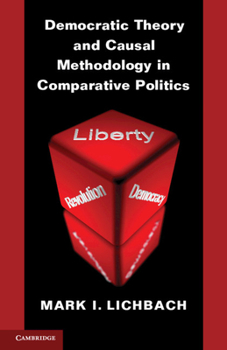Democratic Theory and Causal Methodology in Comparative Politics
Select Format
Select Condition 
Book Overview
Barrington Moore bequeathed comparativists a problem: how to reconcile his causal claim of "no bourgeoisie, no democracy" with his normative "dream of a free and rational society." In this book, Mark I. Lichbach harmonizes causal methodology and normative democratic theory, illustrating their interrelationship. Using a dialogue among four specific texts, Lichbach advances five constructive themes. First, comparativists should study the causal agency of individuals, groups, and democracies. Second, the three types of collective agency should be paired with an exploration of three corresponding moral dilemmas: ought-is, freedom-power, and democracy-causality. Third, at the center of inquiry, comparativists should place big-P Paradigms and big-M Methodology. Fourth, as they play with research schools, creatively combining prescriptive and descriptive approaches to democratization, they should encourage a mixed-theory and mixed-method field. Finally, comparativists should study pragmatic questions about political power and democratic performance: In building a democratic state, which democracy, under which conditions, is best, and how might it be achieved?
Format:Paperback
Language:English
ISBN:1107622352
ISBN13:9781107622357
Release Date:November 2013
Publisher:Cambridge University Press
Length:245 Pages
Weight:0.70 lbs.
Dimensions:0.7" x 5.5" x 8.4"
Customer Reviews
0 rating





